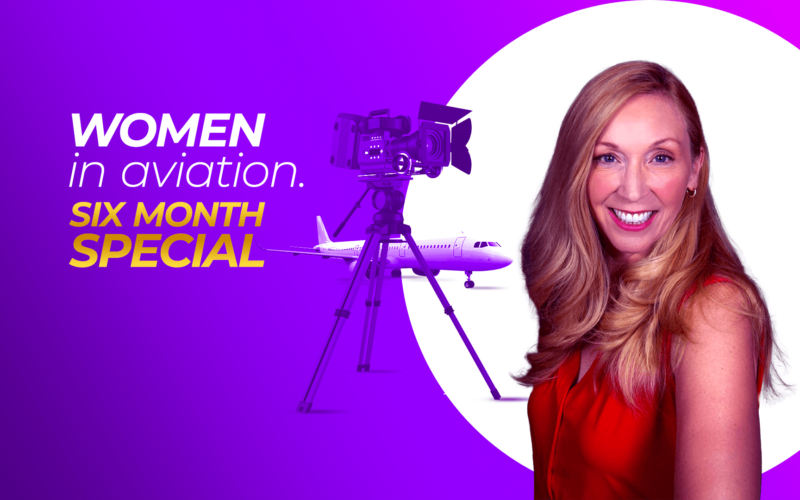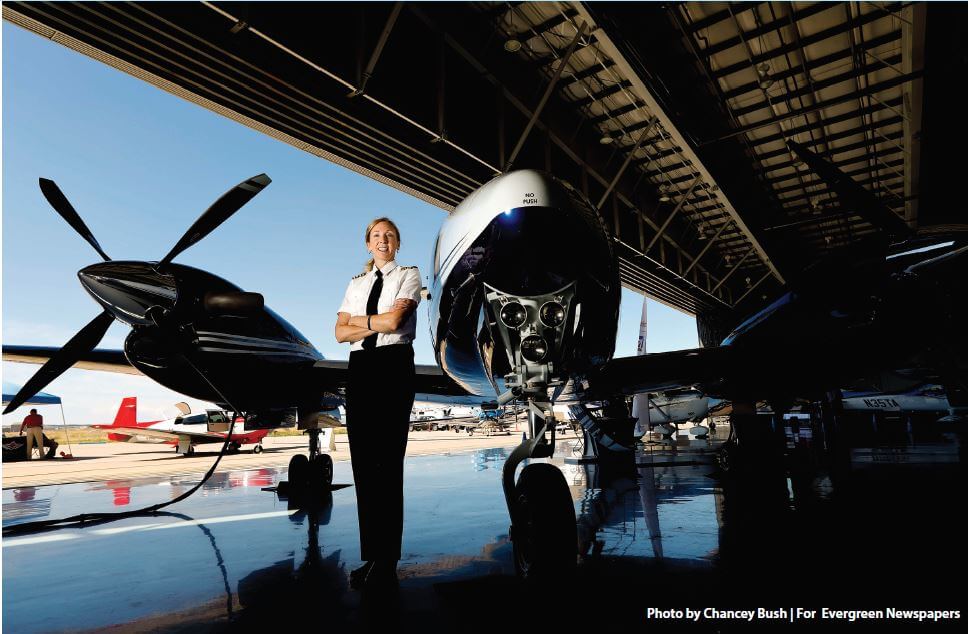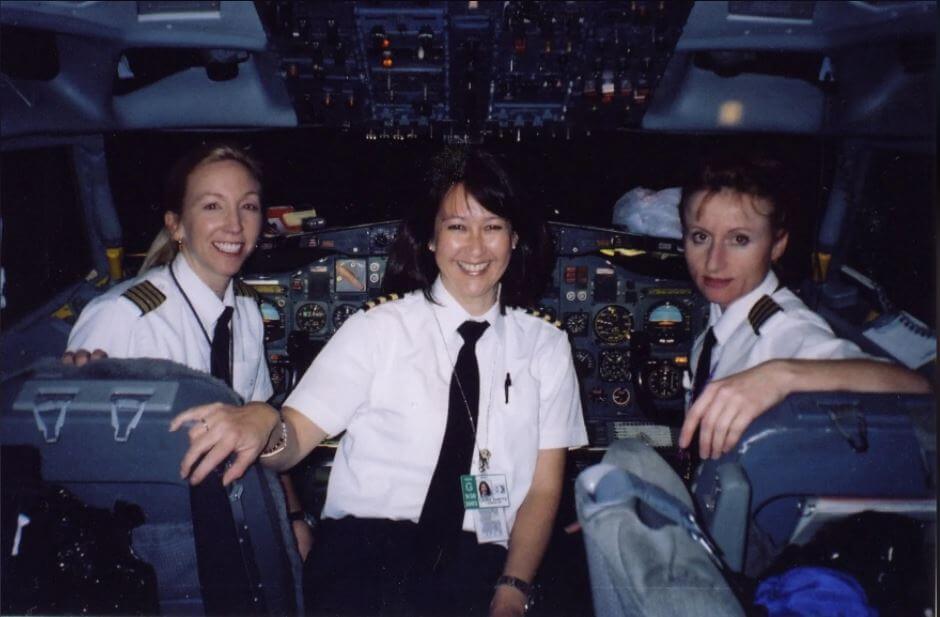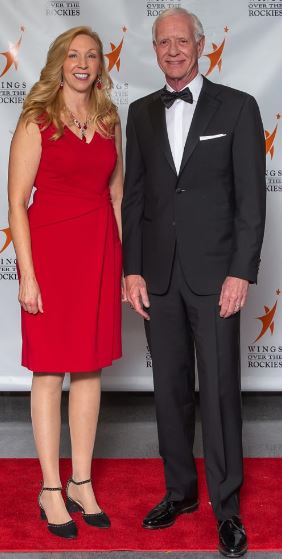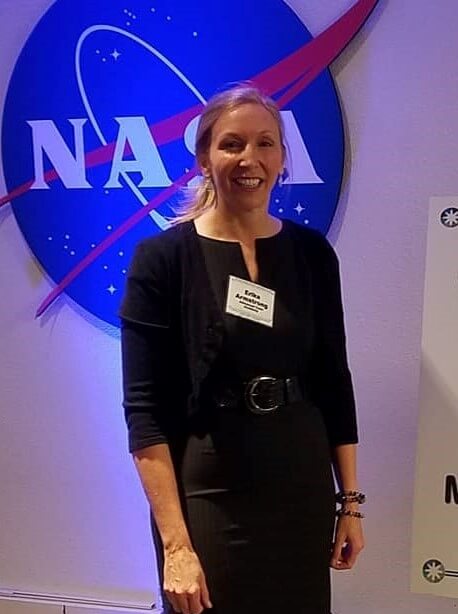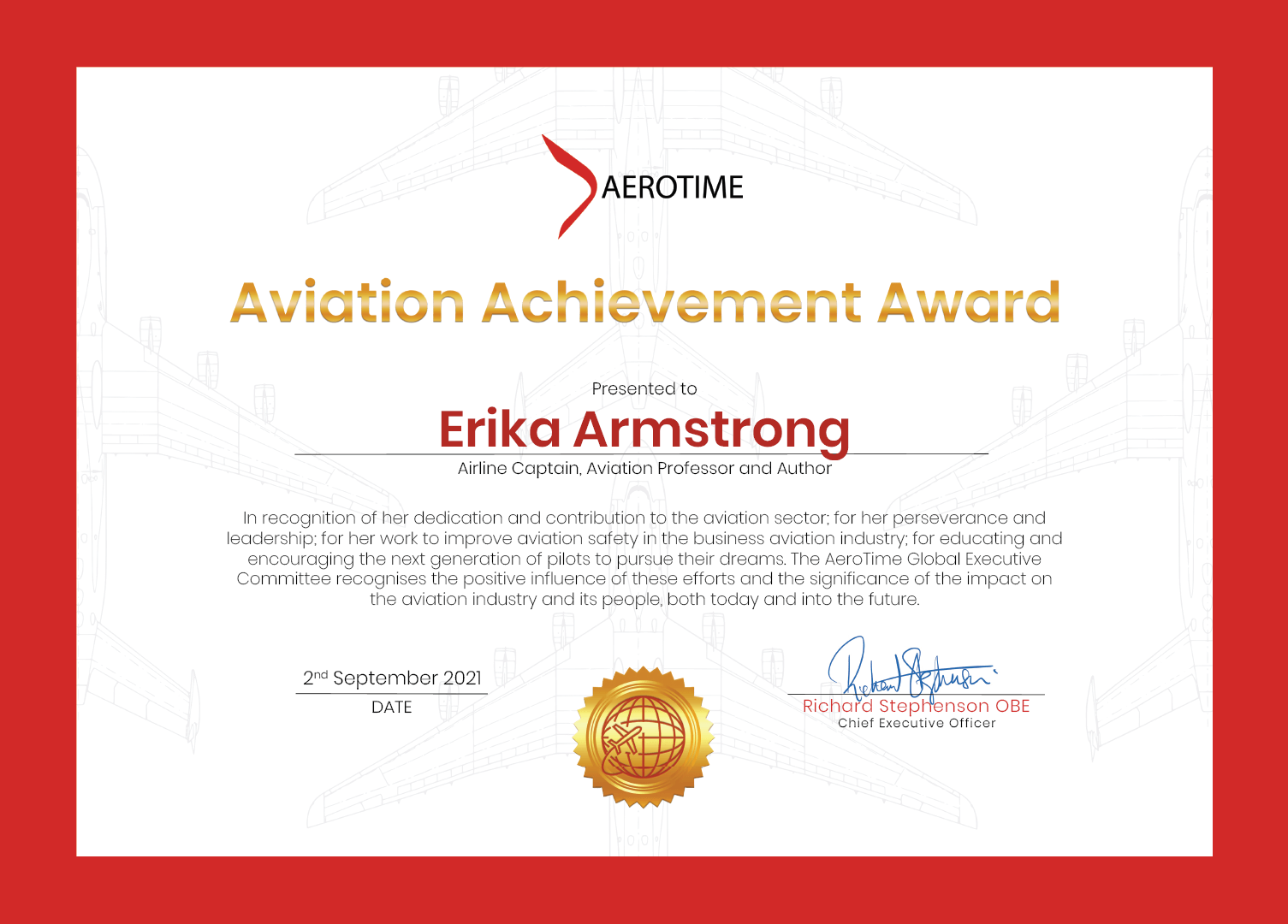“If you need any help, you can always reach out to me. Just drop me a note and I’ll see what I can do for you,” Erika Armstrong says.
Today, Erika Armstrong became the latest recipient of an AeroTime Achievement Award, recognized for her desire to help young people enter into aviation careers and her efforts to raise the profile of women in aviation.
Armstrong describes herself as “an accidental pilot”, having discovered a love for flying while she was working shifts at a fixed base operator to help fund college. She started helping some of the student pilots with their studies and, one flying lesson later, she was hooked.
“So that’s why I am so much of an advocate to get the word out there, so that you don’t have to accidentally find out about it,” she explains.
And get the word out there she does, with hundreds of thousands of followers drawn to her social media posts. Armstrong wrote her first book, A Chick in a Cockpit, because she realised there were so few about women pilots written by women pilots.
She says: “I know [that] for me growing up, I never, ever thought about becoming a pilot. I just didn’t know any women pilots. So I just wanted to bring down the facade that you can’t get into the cockpit.”
Armstrong is currently working on her second book, a compilation of stories on how to become a successful pilot, which focuses on how to operate a plane when you’re locked in that small flight deck with a complete stranger whose personality may be completely different to yours.
Armstrong says: “How do you do that? How do you communicate? How do you keep your wits about you, and everything’s going crazy. So it’s a fun way and a fun platform [for] demonstrating how to do that.”
SLOW PACE OF CHANGE
There’s still only approximately 7% of airline pilots that are women, with the pace of change frustratingly slow. But Armstrong believes that we need to be patient, that the change in perspective will take a generation to become truly apparent.
She continues: “Our kids growing up are going to be used to seeing women flying. I’ll know we’ve made it when we don’t see headlines anymore saying ‘‘the first all female flight crew flew this and that.’”
While money remains a barrier, Armstrong points out that there are many scholarship programs available. Even if they are small, it all helps.
It is also a matter of perception, she says, with some people thinking that they have to be in STEM subjects to get into aviation. What matters most, says Armstrong, is a desire to learn, and a healthy dose of common sense.
“The ones that actually thrive in aviation are the ones that they want to learn,” she says. “They want to pay attention, they are good with people that are willing to listen, they don’t put up the wall of ‘I know everything’.”
Unusually, Armstrong was taught to fly by a female instructor, the first hired by the school she walked into that day as a curious college student.
After training, the two lost touch for around seven years until one day when Armstrong was the commander of a 727 flight, waiting for her first officer to arrive. “She walked in the door, and she was my first officer. So it was so wonderful to have my flight instructor be my first officer.”
Armstrong notes that men are getting used to working with female pilots, too, compared with earlier in her career when they were unsure how to act.
She says: “It just takes time, it takes exposure, and just having female pilots and leaders out there talking about it, talking about the good and the bad and the industry, making sure that the next generation is prepared for this life. Both men and women.”
Still, Armstrong doesn’t believe that even 100 years from now, the industry will have achieved a 50:50 split. “I still think that the industry itself, the nature of the beast, is just going to not attract quite as many women as men.”
PLAN B
After an accident caused by a drunk driver put her flying career on hold, Armstrong has turned to teaching, and working for a business aviation company.
She says: “I love those days where I have a 50 year old student sitting next to an 18 year old student, and just seeing the different generations side by side, but still connecting on the same level.”
The crash ensures that she tells her students to always have a back-up plan given the fragile nature of aviation, where the loss of your medical or a failed check ride can mean the end of a career. However, she says that aviation has given her the skills to cope with such a life-changing event.
“If you’re up at 35,000 feet, and you’re having an engine failure, you don’t have the time to say, ‘I’m not going to deal with this right now’. It teaches you to look at the situation and say, ‘Okay, I can’t do anything about it, but I can control the crash’.”
Business aviation has turned out to be a smart move during the pandemic, with many companies turning to business jet companies to get their staff from A to B in the absence of commercial airline routes.
“It’s introduced a lot of those people into corporate aviation. And I think they’re going to find now that they’ve been there, they’re never going to leave,” she predicts.
In the future, Armstrong hopes to regain a medical that will allow her to fly general aviation aircraft, as well as secure her glider rating. She is also eagerly watching the latest developments in automation and supersonic travel.
“I think we need to go back and rethink how we use technology and automation. At the end of the day, the pilot should have ultimate authority over any system on that aircraft,” she says, alluding to the tragic 737 Max crashes.
As for supersonic, Armstrong says she can’t believe how long it has been since Concorde. “We’re ready for New York to London in three and a half hours. I’d love to be part of some of that.”
AeroTime Aviation Achievement Award
To celebrate her dedication and contribution to the aviation sector, and to acknowledge her perseverance and leadership, and her efforts to improve aviation safety, while educating the next generation of pilots and encouraging them to pursue their dreams, AeroTime CEO, Richard Stephenson OBE, was delighted to present Erika Armstrong with a coveted AeroTime Aviation Achievement Award.
Armstrong became the 24th recipient of this award and joins the ranks of other aviation professionals from around the world being recognized for their dedication and inspirational work.
Stephenson says: “ The work being done to educate and encourage aspiring aviators is critical for our industry. Our Global Executive Committee wanted to recognize and say thank you for your commitment to encouraging the industry’s future generations. We want to acknowledge your leadership and the energy that you bring to the conversation of people aspiring for a career in the industry, and we are certain that many others across the wider industry have been inspired by your journey, your passion and positive efforts.
Armstrong says: “Thank you so much for doing this and having the conversation and helping me get the message out because I couldn’t do it unless there are companies like you engaging in this conversation.

